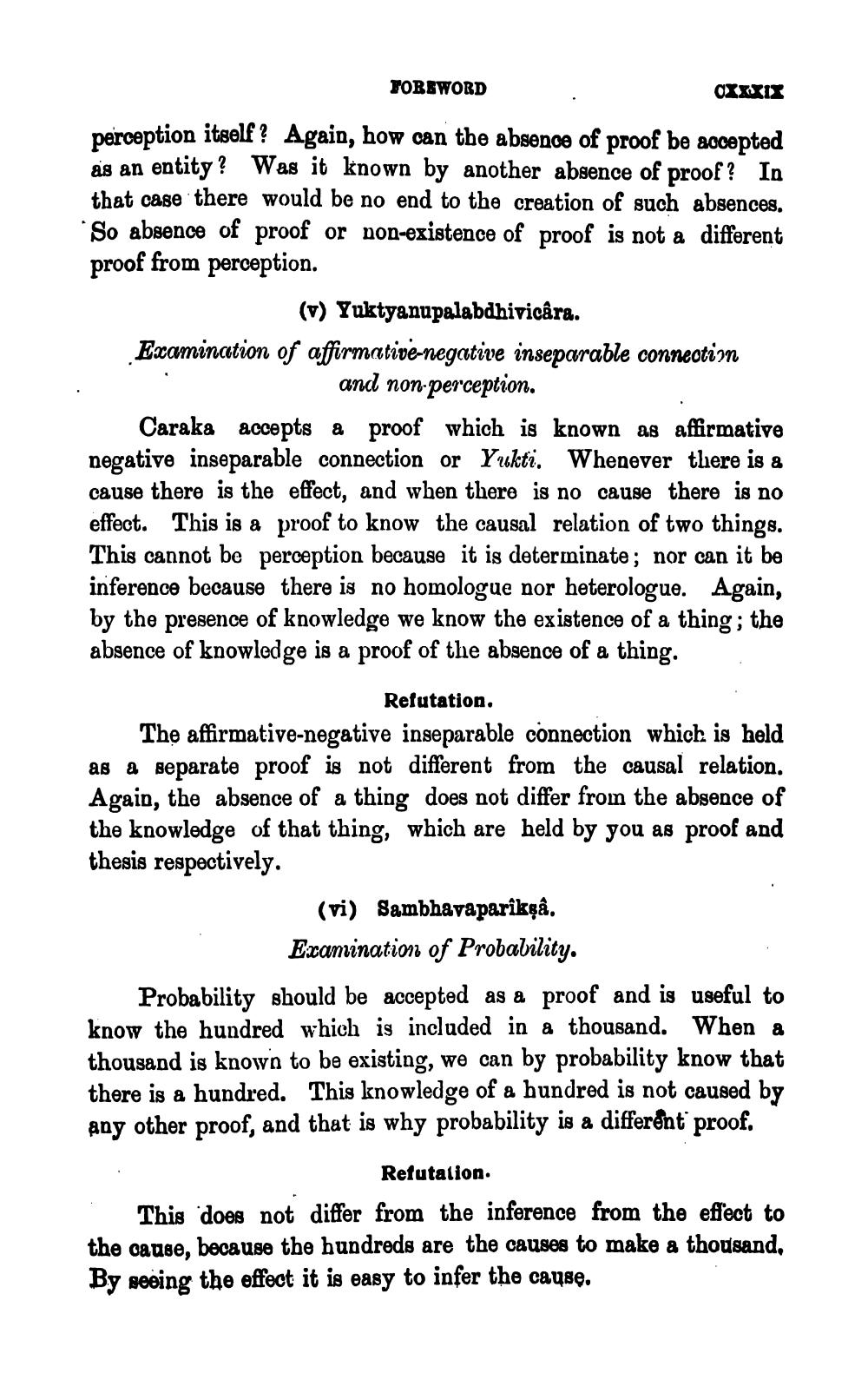________________
FOREWORD
OXXXIX perception itself ? Again, how can the absence of proof be accepted as an entity ? Was it known by another absence of proof? In that case there would be no end to the creation of such absences. So absence of proof or non-existence of proof is not a different proof from perception.
(v) Yuktyanupalabdhivicâra. Examination of affirmative-negative inseparable connection
and non-perception. Caraka accepts a proof which is known as affirmative negative inseparable connection or Yukti. Whenever there is & cause there is the effect, and when there is no cause there is no effect. This is a proof to know the causal relation of two things. This cannot be perception because it is determinate; nor can it be inference because there is no homologue nor heterologue. Again, by the presence of knowledge we know the existence of a thing; the absence of knowledge is a proof of the absence of a thing.
Refutation. The affirmative-negative inseparable connection which is held as a separate proof is not different from the causal relation. Again, the absence of a thing does not differ from the absence of the knowledge of that thing, which are held by you as proof and thesis respectively.
(vi) Sambhavaparikşâ.
Examination of Probability. Probability should be accepted as a proof and is useful to know the hundred which is included in a thousand. When a thousand is known to be existing, we can by probability know that there is a hundred. This knowledge of a hundred is not caused by any other proof, and that is why probability is a different proof.
Refutation This does not differ from the inference from the effect to the cause, because the hundreds are the causes to make a thousand, By seeing the effect it is easy to infer the cause.




